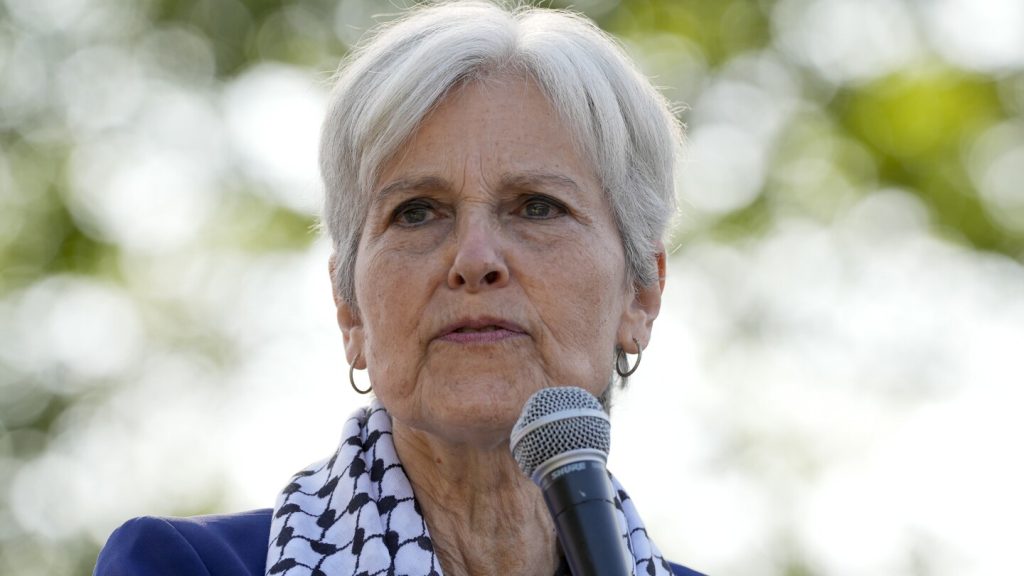The Supreme Court has rejected an emergency appeal from Nevada’s Green Party seeking to include presidential candidate Jill Stein on the ballot in the battleground state. The court’s order, without any noted dissents, allows ballot preparation and printing to proceed in Nevada without Stein and other Green Party candidates. This decision is seen as a victory for Democrats who had challenged the Greens’ inclusion on the ballot in a state known for extremely close statewide races. In the 2020 election, President Joe Biden narrowly defeated former President Donald Trump by fewer than 35,000 votes in Nevada. The state’s Democratic party had filed a lawsuit to remove Stein from the ballot after the Green Party submitted enough signatures to include her. While a lower state court ruled in Stein’s favor, the state Supreme Court found issues with the petition forms submitted.
The Green Party was represented at the Supreme Court by Jay Sekulow, a Trump ally who was part of the president’s legal team during his first impeachment trial. It is part of a larger effort by a network of Republican political operatives, lawyers, and allies across the country to influence the upcoming election in ways that could benefit Trump. Their strategy includes supporting third-party candidates like Stein and Cornel West, who offer liberal voters an alternative that could potentially draw support away from Vice President Kamala Harris, the Democratic nominee. By propping up third-party candidates, the aim is to split the vote and weaken the chances of the Democratic candidate winning in key battleground states.
The decision by the Supreme Court to reject the Green Party’s appeal means that ballot preparation and printing in Nevada will proceed without Jill Stein and other Green Party candidates included. This outcome is significant in a state where elections have been decided by extremely narrow margins, making every vote count. The ruling is a blow to the Green Party’s efforts to gain a foothold in the state and offer voters an alternative to the two major parties. The state’s Democratic party, which had initiated the legal challenge against Stein’s inclusion on the ballot, has emerged victorious in this legal battle.
The involvement of Jay Sekulow, a Trump ally, in representing the Green Party at the Supreme Court highlights the political dynamics at play in this case. Sekulow’s ties to Trump and the Republican Party underscore the broader effort by Republican operatives to influence the election and shape the outcome in ways that benefit their interests. By supporting third-party candidates like Jill Stein, who may draw votes away from the Democratic nominee, Republicans are seeking to gain an advantage in key battleground states. The rejection of the Green Party’s appeal by the Supreme Court is a setback for these efforts, but the broader strategy of supporting third-party candidates remains a key part of the Republican playbook.
As the election season heats up, the battle for ballot access and voter support intensifies in states like Nevada, where every vote can make a difference in the outcome. The legal challenges and political maneuvering surrounding the inclusion of third-party candidates on the ballot reflect the high stakes of the upcoming election. With the Supreme Court’s decision to reject the Green Party’s appeal, the path is cleared for ballot preparation and printing to proceed in Nevada without Jill Stein and other Green Party candidates. The impact of this ruling on the election dynamics in the state and the broader implications for the presidential race remain to be seen as the campaign continues to unfold.


